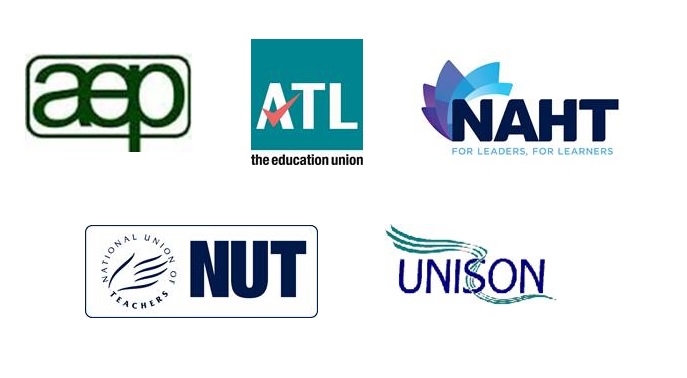Unions Issue Joint Statement On Government’s Revised Academies Programme

ATL, NAHT, NUT, UNISON and AEP unions criticise government's continuing support for mass academisation and call for 'meaningful discussions'

- by Teachwire
- Classroom expertise and free resources for teachers

Five unions – the Association of Educational Psychologists, Association of Teachers and Lecturers, National Association of Head Teachers, National Union of Teachers and UNISON – have issued a joint statement reasserting their opposition to ‘the mass academisation of schools’.
While welcoming the recent move by the Secretary of State for Education to not use legislation to force all schools in England to become academies, the statement criticises the government’s plan to impose conversions on LAs determined to no longer viable or ‘underperforming,’, arguing that, ‘This unnecessary and expensive reorganisation is being pursued at a time when all schools face real term cuts in pupil funding and are having to pay more of that funding back to the Treasury in increased National Insurance and pension contributions.’
The unions go on to outline what they believe will be six major consequences of mass academisation:
• An end to LAs playing a role in school improvement, despite 86% of LA-maintained schools currently being rated good or outstanding;
• A reduction in school autonomy by requiring most converting schools to join a Multi-Academy Trust and no means of converting back
• An end to the locally administered management in place since 1988, which runs counter to the government’s previously expressed intention to put heads and teachers in control of schools
• An increasingly marginalised role for parents in school governance, due to governing boards of academy trusts no longer being required to appoint parent governors Marginalise parents in the governance of schools by removing the requirement for elected parent places on the governing boards of academy trusts.
• Further fragmentation of LA-run SEND support services and a weakening of locally co-ordinated education provision, with implications for disadvantaged or vulnerable children
• A lower likelihood of being able to deliver fair admissions for all local children
The statement concludes with call for the government to not introduce a new Education Bill in the Queen’s Speech, but rather enter into meaningful dialogue with members of the teaching profession, LAs, governors and parents on matters including funding, teacher and staff shortages, school place provision and recent issues surrounding assessment.










